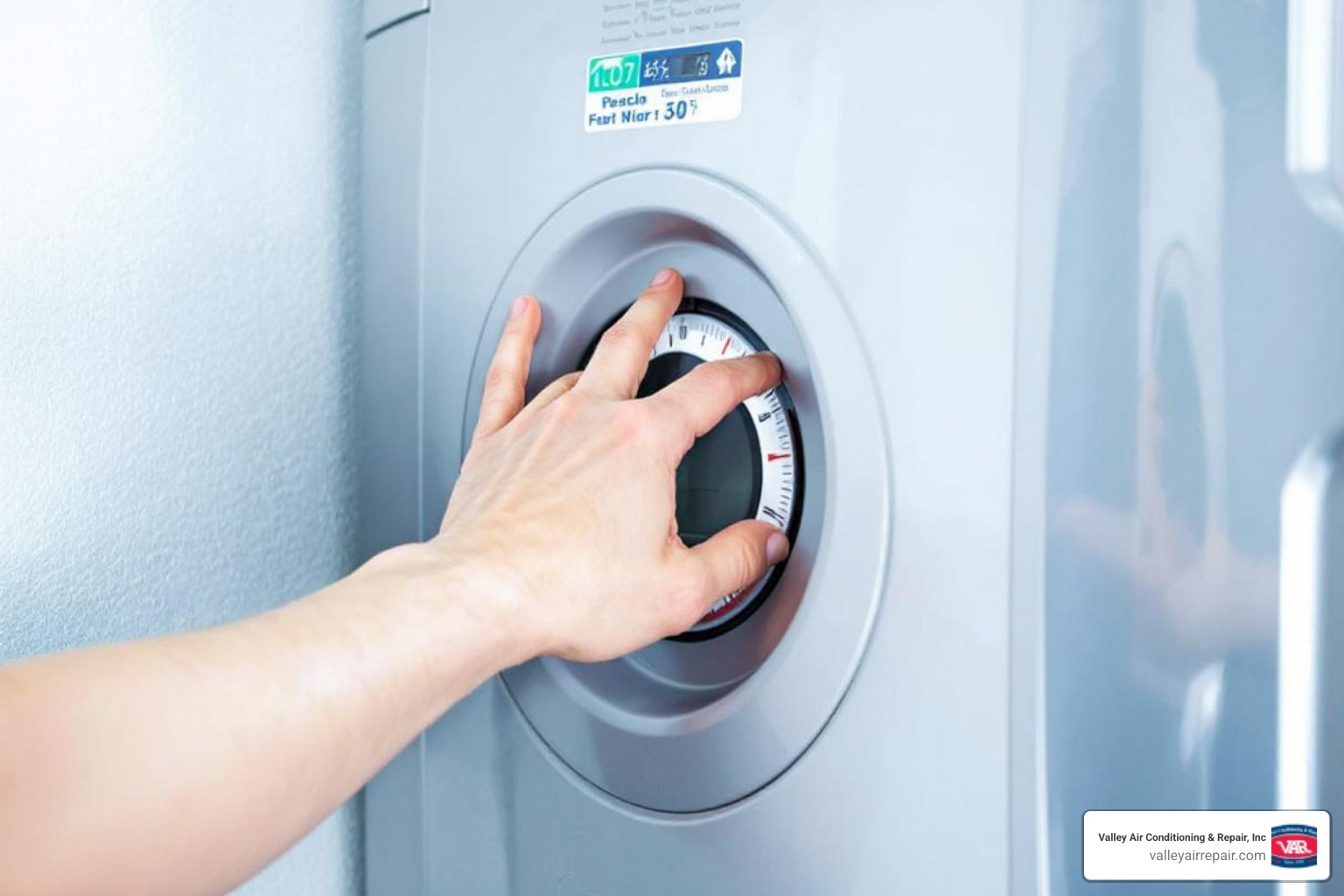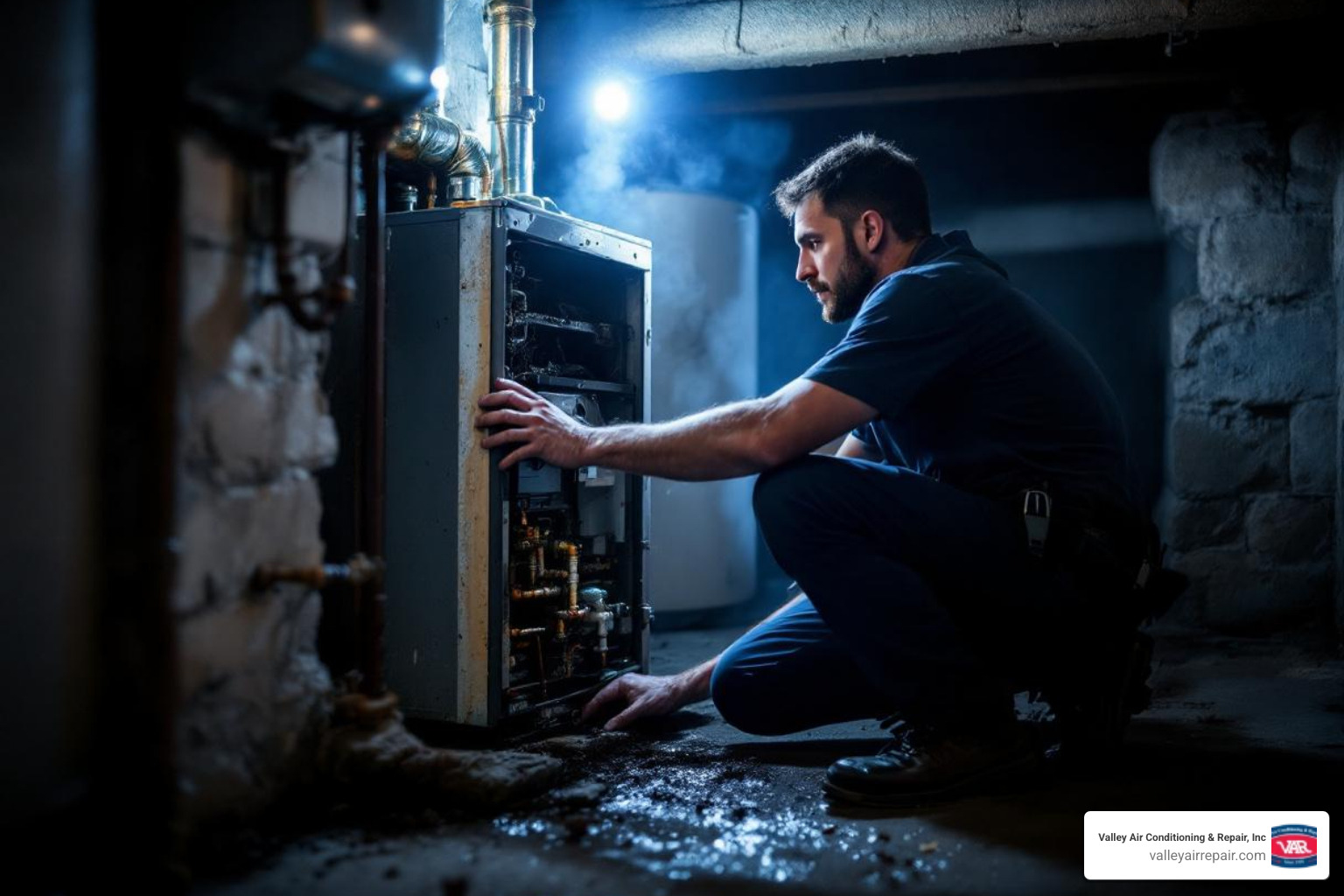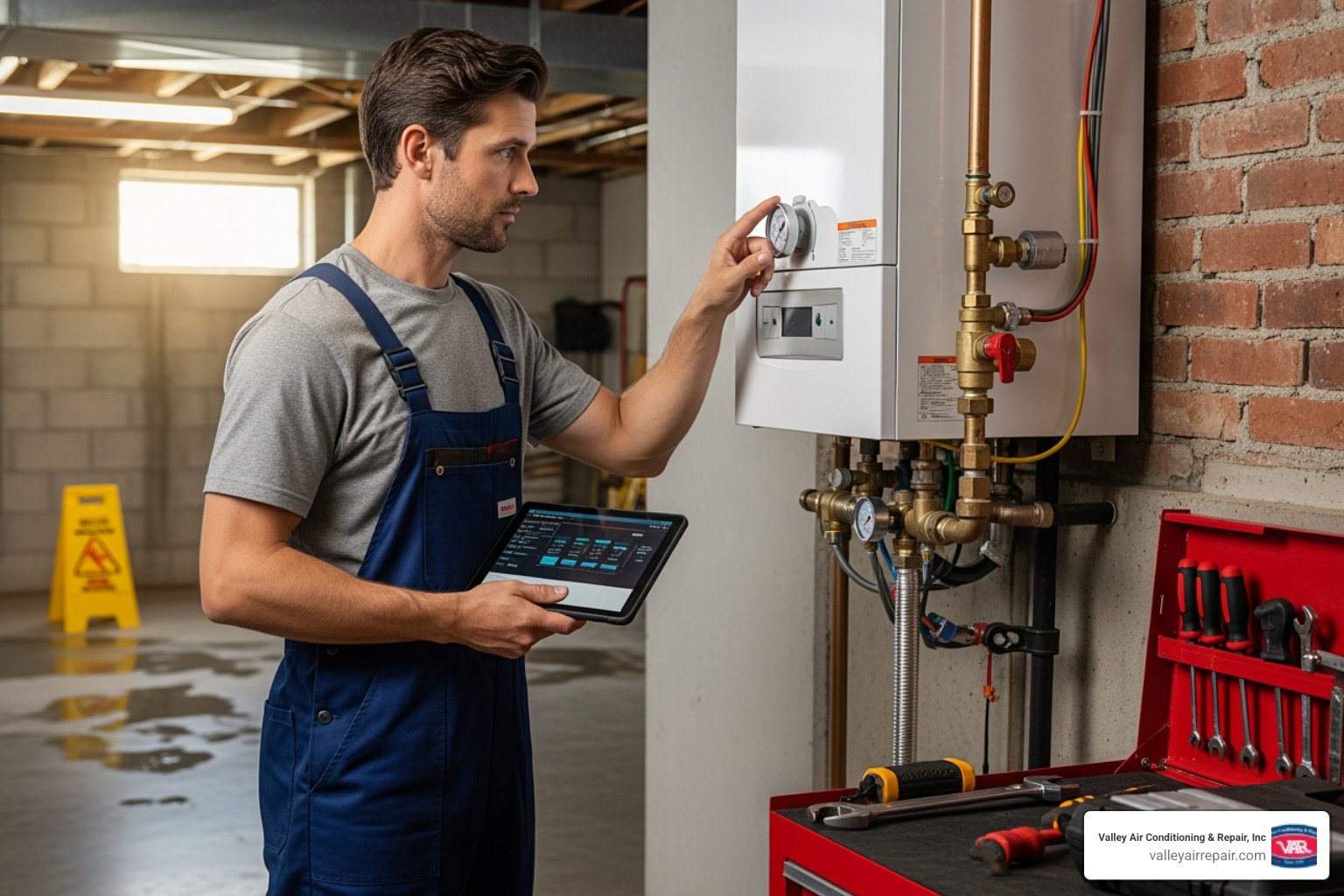What's Causing Your AC Compressor to Fail in Sanger?

When summer hits Sanger, the last thing anyone wants is to find out that their air conditioner has stopped working during a heatwave. For most homeowners, AC problems seem to come out of nowhere, often leading to stress and discomfort. One of the most common reasons for an AC shutting down or blowing warm air is a failing compressor. The compressor is the part of the AC system that helps move refrigerant through the unit. Without it, your AC doesn’t stand a chance at keeping your home cool.
If your AC is acting up, the issue could be a worn or damaged compressor. This affects more than comfort. It can increase your energy usage and lead to bigger problems down the line. A faulty compressor can also put extra strain on the rest of the system, leading to more expensive repairs if ignored for too long. That’s why it’s important to catch the signs early and schedule AC repair in Sanger before things get worse.
Common Signs Of AC Compressor Failure
Most AC compressors don’t just suddenly fail. They tend to give off warning signs that something’s not right. Ignoring these signs can turn a fixable situation into a complete system breakdown. If you live in Sanger and your AC has been acting strange or can’t keep up with cooling, pay attention to these symptoms:
- Loud clicking, grinding, or clunking noises when the unit starts
- Lower air pressure or warmer air coming out of your vents
- The AC runs, but it doesn’t ever cool the house properly
- Breaker trips when the AC kicks on, and it happens more than once
These signs are common when the compressor is wearing out or struggling. For example, if your AC constantly trips the breaker, it could mean the compressor is pulling in too much power due to electrical damage. If you hear loud noises, something inside the compressor may be loose or broken. Warm air or poor airflow means the refrigerant isn't getting pushed through the system as it should.
Recognizing these issues early can help prevent a full system replacement. It’s much easier and more cost-effective to have one part serviced or replaced than to wait until the compressor burns out completely. AC repair in Sanger should be scheduled as soon as any of these symptoms begin so the issue is contained.
What Can Cause a Compressor to Fail?
There are several different reasons a compressor can stop working. In most cases, it’s the result of one or more problems that develop over time. Poor maintenance or wear on other parts of the AC system can often lead to damage that ends up infecting the compressor directly.
The most common causes include:
1. Electrical problems – Short circuits, frayed wires, or power surges can harm the compressor’s internal parts.
2. Refrigerant leaks – Low refrigerant levels make the compressor work harder, which eventually causes it to overheat and break down.
3. Dirt, debris, or blocked airflow – When dust and yard debris clog the outdoor unit, airflow gets restricted and heat can't be released properly. This can overheat the compressor.
4. Lack of lubrication – The compressor has moving parts that require oil to function properly. If the oil level drops or breaks down, friction builds up and causes failure.
Each of these issues puts stress on the compressor in different ways. For example, a low refrigerant level isn’t something you can spot standing near the system. But over time, it causes the compressor to overwork, leading to overheating and eventually complete failure.
These problems don't fix themselves. They only grow worse the longer they're left unresolved. That’s why homeowners in Sanger should stay alert and have our technicians check their system at the first sign of trouble. Addressing minor concerns early can stop bigger ones from forming.
Preventive Measures to Avoid Compressor Failure
If you’re a homeowner in Sanger, preventing AC compressor failure starts with regular system care. You don’t need to know the inner workings of HVAC components, but following a few maintenance habits can go a long way. Keeping your system running smoothly is the best way to avoid expensive breakdowns in the middle of summer.
Here’s how to protect your AC compressor from unnecessary wear:
- Schedule professional maintenance at least once a year, especially before peak summer usage
- Keep the outdoor unit free from leaves, dirt, and debris to allow proper airflow
- Make sure nothing is blocking the vents or registers inside your home
- Change air filters regularly to avoid extra strain on the system
- Pay attention to any unusual noises or changes in performance
- Have our professionals inspect refrigerant levels and electrical components
Even small issues like restricted airflow or dirty filters can impact your compressor over time. For example, one Sanger homeowner skipped spring maintenance, thinking the unit was running fine. By late June, their system began making loud startup noises and couldn’t keep up with the heat. A service visit revealed the compressor had overheated due to blocked coils and low refrigerant. If addressed earlier, that failure could have been prevented with a basic tune-up.
Preventive steps don’t take much effort, but they help avoid costly surprises. Professional maintenance catches problems early and helps your AC run better through the hottest parts of summer. If you’re noticing signs that haven’t been checked out, now is the time to do it before the problem grows.
When to Call for AC Repair in Sanger
There are a few situations where it’s clear that a professional needs to step in right away. Some compressor issues can seem minor at first, but they tend to evolve into full-blown failures without warning. If you’re experiencing any of the following, make it a priority to schedule AC repair in Sanger:
- Your AC runs, but cooling is uneven or weak throughout the home
- You’ve noticed a sudden spike in your utility bills during usual use
- The system keeps starting and stopping over short cycles
- You hear loud clunks, banging, or clicking noises when the AC turns on
- Ice builds up around the outdoor unit, especially on warm days
- There’s visible oil or fluid pooling near the equipment or refrigerant lines
These issues all suggest that your compressor may already be in trouble. Electrical faults, refrigerant leaks, or heat buildup inside the system can all lead to early compressor failure. Waiting too long might mean that a simple part replacement can turn into a full compressor install, which is much more expensive.
AC repair in Sanger should always be handled by our technicians. From checking refrigerant pressure to making safe electrical repairs, our team has the tools needed to diagnose problems the right way. Compressor issues are complex and can’t be fixed with a filter swap or thermostat reset. So if your system is showing signs that something’s not right, don’t try to guess at the cause.
Getting Your AC Back on Track
Once compressor problems are identified and handled correctly, your AC unit can start working more efficiently again. Cooling will be more consistent, the system won’t have to work as hard, and wear on the rest of your components will be reduced. Homeowners in Sanger who respond quickly can often avoid full system replacements and keep their units running well all season.
Being proactive is the key. Compressor trouble never gets better on its own, and ignoring even small performance issues may lead to much larger problems. Staying on top of inspections, maintenance, and fast repairs helps protect your comfort, your AC system, and your wallet.
If your AC in Sanger hasn’t been working like it should, it might be time to have our technicians take a look. Addressing compressor issues early keeps things from getting worse and gives you peace of mind all summer long.
If you want to avoid unexpected breakdowns and keep your cooling system efficient all summer long, timely maintenance and repairs are essential. If you need reliable AC repair in Sanger to address compressor issues before they worsen, trust Valley Air Conditioning & Repair, Inc. to deliver expert solutions. For a quick estimate or to book a service visit, please contact us today.




.webp)









